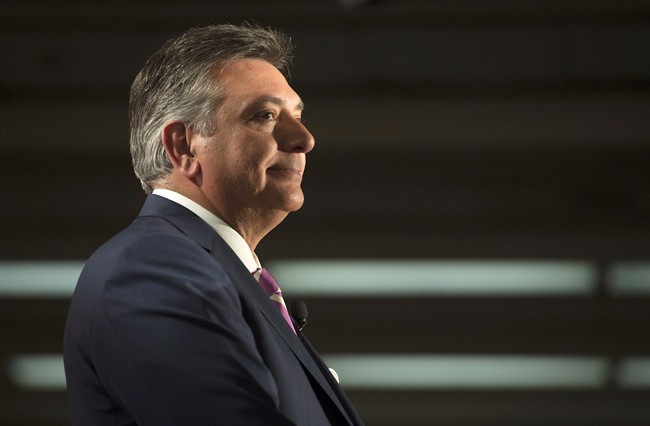TORONTO – A single paragraph buried in the Ontario budget could mean big changes in the lives of some of the province’s most impoverished residents by giving them a guaranteed minimum income.

Last month’s provincial budget promised a pilot project to test “that a basic income could build on the success of minimum wage policies and increases in child benefits by providing more consistent and predictable support.”
The concept is on the radar of the federal Liberals, too – a Liberal-dominated parliamentary committee called on the Trudeau government to explore the concept of guaranteeing people a minimum income in a pre-budget report tabled Friday.
READ MORE: Ontarians ‘happy’ overall, but fretting old-age security and finances, survey finds
Charles Sousa, Ontario’s finance minister, said the province has not decided which community will be the test site for a basic income guarantee.
“It’s something that many people seem to have an interest in us testing out, so we’re looking at something in the fall,” he said. “Other jurisdictions are using it, and I want to see if it makes sense for us, so it’s important for us to pilot, to test it out, and see what happens.”
Proponents say a guaranteed minimum income, which would see families living below the poverty line topped up to a set level, would be more efficient and less costly than administering the existing series of social programs that help low-income residents.
They also say poverty is one of the biggest determinants of health, and a guaranteed minimum income could mean reduced health-care costs.
“Poverty costs us all. It expands health-care costs, policing burdens and depresses the economy,” Sen. Art Eggleton said last month as he called for a national pilot project of a basic income guarantee.
About nine per cent of Canadians live in poverty, but the numbers are much higher for single mothers and indigenous communities.
If Ontario’s basic income pilot project is designed correctly, it could help eliminate some of the “perverse incentives” that institutionalize poverty, said Danielle Martin, vice president of Women’s College Hospital in Toronto.
“We want to design programs that will give people who need it income security, but will not discourage them from entering the workforce,” said Martin.
“And it’s entirely possible, if we design this pilot right, that we can actually have a major impact on the health outcomes for some of the most vulnerable people in the province, and that can save tremendous amounts of money in the health-care system down the road.”
Canada experimented with a guaranteed minimum income in Dauphin, Manitoba in the early 1970s. The so-called Mincome project found it did not discourage people from working, except for two key groups: new mothers, and teenaged boys who opted to stay in school until graduation.
READ MORE: Canadians nearing retirement with ‘totally inadequate’ savings: study
The Mincome project also found an 8.5 per cent reduction in hospital visits in Dauphin during the experiment, said Martin.
“People had fewer visits because of mental health problems,” she said. “There were fewer low birth-weight babies, so very concrete and immediate impacts in terms of people’s health.”
The Income Security Advocacy Centre said care must be taken to ensure no one is worse off as a result of the Ontario pilot for a basic income guarantee.
People on social assistance in Ontario also get their prescription drugs and dental bills paid for, as well as help with child care, and they should not lose those benefits with a basic income guarantee, added Martin.
READ MORE: Activists push for guaranteed minimum income
“It’s called the welfare wall, a phenomenon where people, even if they could find part-time work or lower paying work – they’re actually better off in some ways by staying on social assistance because of those other benefits,” she said.
“For some people, that makes it basically impossible to get off of welfare.”
People should not be concerned that a guaranteed minimum income would mean those on social assistance are suddenly living on easy street, said Eggleton.
“This wouldn’t be the good life,” he told the Senate. “It would provide a floor, a foundation that low-income people can then build upon for a better life.”
Social programs should lift people out of poverty, not keep them there, and a basic income is a new approach that could work, added Eggleton.
“How we have dealt with poverty has failed,” he said. “We need to test a different approach.”



Comments